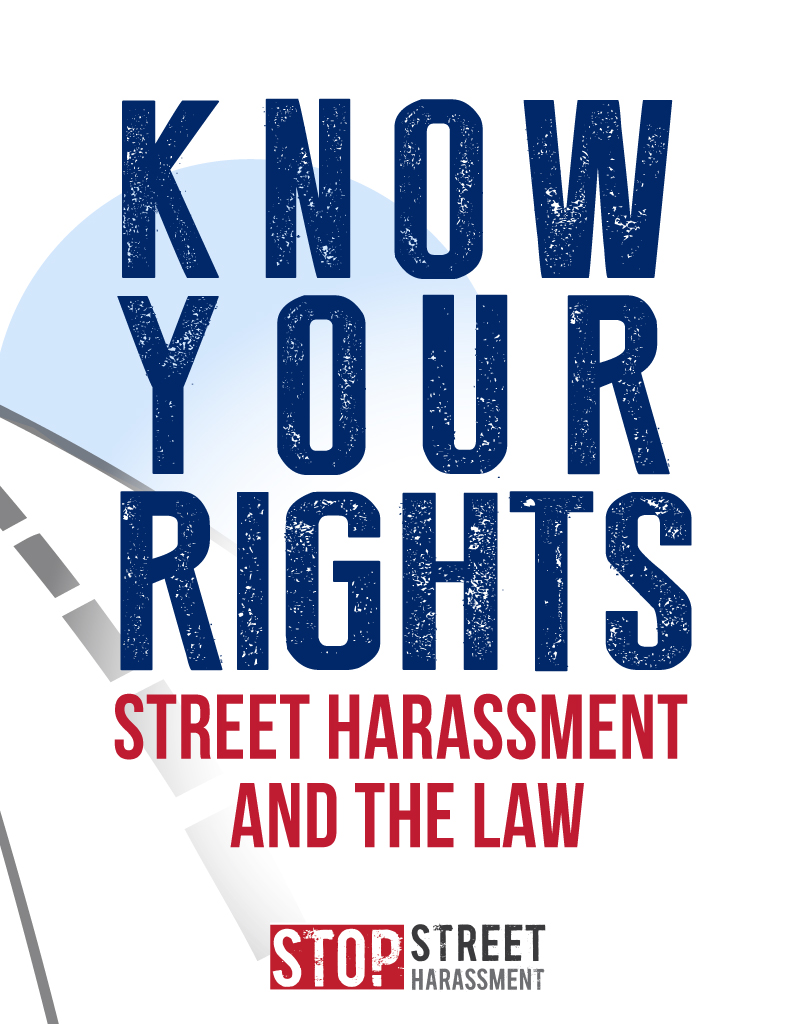 If you decide to report a street harassment incident, here is what you can expect to happen. In order to get the best possible result, it’s important to be patient (it can be a long process), know your rights, and be ready to advocate for them.
If you decide to report a street harassment incident, here is what you can expect to happen. In order to get the best possible result, it’s important to be patient (it can be a long process), know your rights, and be ready to advocate for them.
So You’ve Chosen to Report…
1. A police officer will file a report to begin the legal process.
* If you report a crime that is in progress by calling 911, an officer will come to the scene and may arrest the person you are reporting right away.
* Officers will attempt to apprehend the suspect after the incident has taken place if the suspect fled the scene when you called 911, or if you reported the incident at a later time. If the suspect is apprehended, s/he will be arrested.
* When someone is arrested, police may hold him or her in custody (usually for 24 hours) and s/he may have to appear before a judge. Whether or not this happens depends on state law and the specifics of the case and the individual.
2. The prosecuting attorney, the lawyer who represents the government in criminal cases, decides whether to press charges against someone accused of committing a crime.
* The police officer or detective tasked with investigating the crime will present the investigation to the prosecutor’s office.
3. If the prosecutor’s office decides to press charges, the defendant (the person being charged with a crime, in this case, the street harasser) will appear before a judge for an arraignment, where s/he will be formally notified of the charges filed against him or her.
4. At the arraignment, the defendant will enter a plea – either guilty or not guilty.
* If the charge is a misdemeanor and the defendant pleads guilty, the judge may proceed with sentencing, typically at a later hearing.
* If the defendant pleads not guilty, a trial date will be set.
* You may choose whether to be present at the arraignment.
5. After being charged, the defendant may be released from custody. A judge typically makes this decision, and s/he may or may not require the defendant to pay bail.
6. Before a trial, there may be a hearing, pre-trial meeting, or any number of delays in the process. This is normal – judicial processes can take a long time.
Your Rights
If you are the victim of the crime you have reported, you have certain rights throughout this process. You may have the right to a protective order or a no-contact order against the defendant if s/he is released from custody. Your legal rights may vary by state and according to the circumstances, so you should ask a police officer or someone from the prosecutor’s office to explain your rights to you.
This is also a good time to find out the specifics of the legal process in your state, and your rights and responsibilities regarding pre-trial meetings, appearance at hearings and the trial, and testimony.
No Charge?
There are a variety of reasons why a street harassment charge may not be upheld, including these ones. No matter the reason, we know it can be very frustrating after you’ve invested time and energy.
It won’t be a complete waste though, because bringing street harassment to the attention of the justice system can help prevent it in the future.
